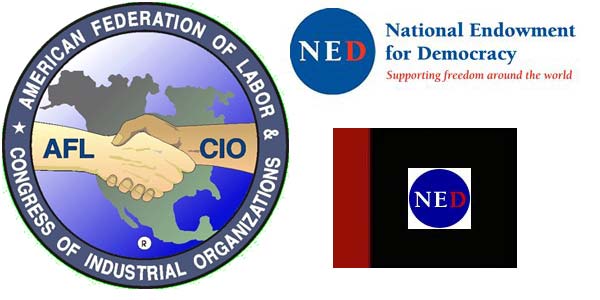"…
What Frank (2004) labels as “organized labor’s embrace of the American Century” was motivated, at least in part, by self-interest. Labor leaders “believed that domination of the world economy by U.S. corporations was good for American workers, and so they allied themselves with those forces that supported U.S. corpo- rate expansion, and especially investment in developing countries” (Scipes 2000, 5). Loyalty and allegiance were to secure for the U.S. working class a “share of the great American pie,” as expanding markets overseas and the growth of a massive defense sector at home were seen through the prism of winning jobs and wages for American workers (Radosh 1969, 452; see also Wehrle 2003). American political leaders, for their part, though often opposing organized labor domestically, saw the AFL-CIO as providing a helpful legitimizing presence in pursuing foreign policy objectives abroad, as well as an institutional vehicle for skirting around legal restrictions on direct government involvement in funding political, labor, and civil society organizations in other countries (Lens 1970).
…
hopes for real change have been undermined by the AFL-CIO’s continued reliance on U.S. government funding to support its international work (provided through the U.S. State Department, the U.S. Agency for International Development, and especially, the quasi-governmental NED), its reluctance to open the books and “clear the air” on its past cold war activities, its continued lack of transparency regarding its international work, and its ties to orga- nizations involved in a 2002 coup attempt against President Hugo Chavez in Venezuela (Scipes 2005a, 2005b, 2007a; Shorrock 2003). Even in the best-case sce- narios, U.S. labor internationalism today frequently tends to be characterized by paternalism (“a habit of telling foreign workers and unionists what is best for them”), by America-firstism (“seeing our own interests and priorities through a prism of eco- nomic nationalism”) (Ancel 2000, 29, 30), and by a baseline assumption “that the AFL-CIO has the right to use its influence and U.S. government funds to restructure the labor unions of . . . far smaller [countries that are] overshadowed by Washington’s power” (Sustar 2005, 106)."


deleted by creator
Comrade Biden helping the cause.